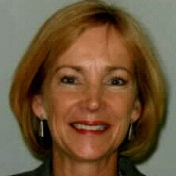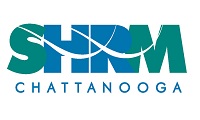Every month, CPE will feature an instructor, stakeholder, or participant. We will highlight their program area and provide insight into their professional work life.
For our first spotlight, we talked with Kim Sexton, SHRM-SCP, Human Resources Consultant for Erlanger Health Systems. Kim Sexton serves as CPE”s SHRM-CP/SHRM-SCP Exam Prep Instructor. She has taught the course for over 10 years and brings a wealth of knowledge to the certification exam.
During our chat, we asked Kim about the benefits of certification and updates to the 2019 SHRM Learning System. We closed with a series of questions about her professional work life and how she maintains success.

CPE: Tell us about the SHRM credential and its importance in the HR profession.
Kim: There are several reasons. One in particular is that the certification quantifies competency. It shows a level of dedication to the profession and accumulation of best practices. Placing those credentials behind your name show a level of expertise.
Another aspect that I have seen time and time again is that it gives individuals confidence, and that truly goes a long way. For example, some of our students have wanted to apply for HR positions they haven’t worked in. They now have the training and confidence to look at that next level.
What often happens in HR is we become so specialized in one area, for example recruitment, but with SHRM certification, you have competency in all facets. The credential is almost like introduction to all the other HR disciplines. Even if we work in recruitment, we must have a competency of areas such as compensation and employee relations—because they all overlap.
CPE: When you received your SHRM certification, what did it do for you?
Kim: For me, the credentials made me more confident. When I applied for jobs who recognized the credentials, I had an advantage. Employers often have individuals with similar backgrounds, but the credentials are able to show that higher level of expertise. The credentials really did help my career.
CPE: What value does the SHRM Exam Prep have for an individual preparing for his or her exam?
Kim: The course is an important vital piece. The exam covers such a vast body of information. With so much information, it can be daunting knowing where to start and how to break the content down. Our SHRM Exam Prep program breaks it down for participants. We have a road map for them to follow that can lead to success.
In the classroom, I try to accommodate different learning styles. With scenarios, quizzes, lectures, and group discussions, we are able to help each other learn the content.
CPE: What are some of the biggest struggles for people preparing for the SHRM Certification Exam?

Kim: It is so much material, and often times, people underestimate the importance of learning the content the SHRM way. Industries practice components of HR differently, and I always tell students to wipe away their industry knowledge when they are testing. You need to know it the SHRM way. For some people, it is hard to let go of all their industry knowledge.
CPE: How would you describe your teaching style?
Kim: I try to bring the content to life through real life examples. I found that these examples make the content more meaningful and helpful. I often ask students to share their own experiences so they can learn from each other and see how their stories fit into the SHRM competencies.
CPE: What have you enjoyed most about teaching this course?
Kim: I truly enjoy working with HR people, and I also get great satisfaction in knowing that I am preparing the next generation.
CPE: What are some of the 2019 SHRM Exam Prep course updates?
Kim: One new change for participants is the Online Learning System. They will have more opportunities to test, use flashcards, and practice. The new Online Learning System now provides more in-depth analytics for individuals to really pinpoint where they are struggling.
Personal Professional Development Questions
CPE: Do you have a daily habit that you believe is a key towards a successful day?
Kim: I do, and it is really important! I get up every day between 5:30 and 6:00. I am very much a morning person, and I do not come to work until I have had my morning workout. You cannot separate your brain and your body, and if your body feels good, you then perform better. One day I missed a workout, and an employee noticed and said “Kim, did you not work out this morning?” I was obviously not in the best of moods.
Another habit that I have is to spend the first fifteen minutes in the office outlining my to-dos. I do monthly, weekly, and daily objectives. I do not feel comfortable leaving the office until I have completed these assignments.
CPE: Are there any tools you use to help you stay organized?
Kim: I have tried lots of different tools. Some of them work better than others. I used the Franklin Planner for years. What I have learned is that I have to write tasks out in order to remember them. Sometimes, if a task is really important, I do not let it get out of sight. I’ll have notes all over my office.
CPE: Is there a quote that you live by?
Kim: I have a recent quote. “Leaders should not create followers. Leaders should be creating other leaders.” If I am not working to make my colleagues and employees the next leaders, then I have failed them. My success, especially in HR, is dependent on the people I have around me, and I want to have individuals who are confident to lead.
CPE: How do you stay up to date and relevant in your industry?

Kim: There is an enormous volume of information coming at HR people, and the challenge is filtering it. Honestly, I do not have time to read everything that is coming at me, so I use SHRM. I am a student of SHRM, and SHRM sends me an update at least three times a week. I make myself read or at least scan those updates—following up as necessary.
SHRM also sends me Tennessee law changes. The email newsletters are an easy way for me to organize all the information coming at me. If I need additional information, I can go out and research.
I also attend local and national SHRM meetings, and I am lucky to have a great group of HR people I can pick up the phone and call.
CPE: What is the one piece of advice you would give someone in their career journey?
Kim: It is not enough to focus on being a good HR practitioner. You must also see where you can add the most value to a company. You not only have to be the expert in HR, but also be an expert in your industry and your company. You need to be strategic and help your organization meet its goals.